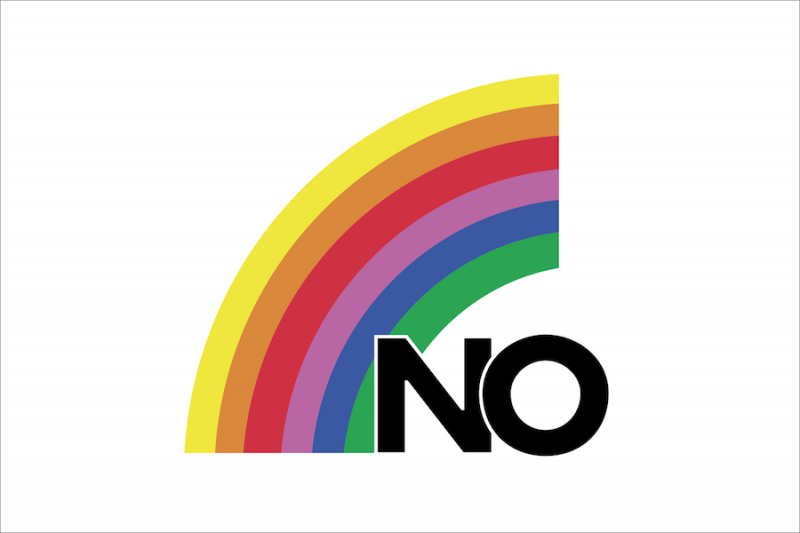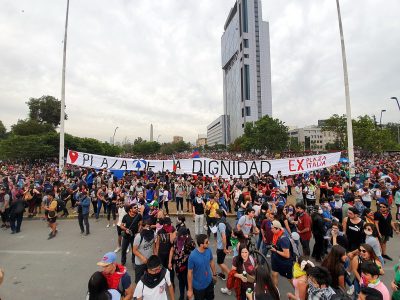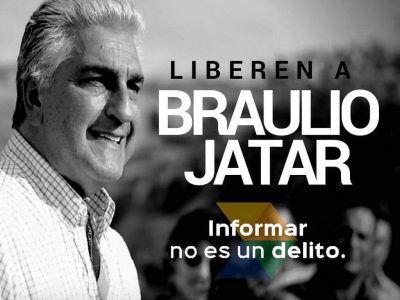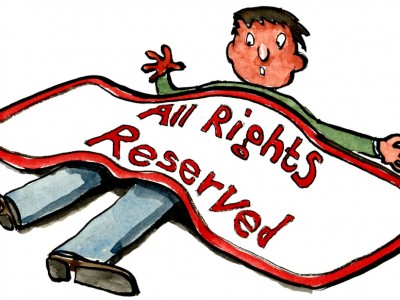Augusto Pinochet, perpetrator of the 1973 coup d’etat in Chile, fell from power by the force of the ballot box in 1988. He is history’s only dictator who organized an election to decide his future, and was deposed democratically. As in any political race, there were campaigns supporting each side. The “Yes” was advocating for Pinochet’s reelection; the “No” aimed to put an end to the military dictatorship. Openly airing an advertising message against a military regime that controls the media is a heroic task, even today. But the “No” campaign used an optimistic message — bringing about a paradigm shift in the art of presenting raw and painful human rights issues — and with that was able to propel a revolution.
The 2012 film “No” by Pablo Larraín, tells the story – without being a documentary – of the October 5, 1988 referendum on Pinochet in a positive light. The central character – René Saavedra (Gael García Bernal) is a bright young advertising agency creative and the son of a well-respected opposition figure who returns to Chile after growing up in exile in Mexico. His talent and family background lead the “No” campaign leader, José Tomás Urrutia (Luis Gnecco), ask him to participate in the strategy and design of the “fringe” (a name given to the official 15 minute television program used for political propaganda by all parties during elections).
At the beginning of the process, members of the Concertación (the group of opposition parties) wanted to show the vicious reality of the dictatorship: murders, tortures and disappearances, as a way to open people’s eyes and lean public opinion towards their just cause. René managed to convince the opposition to bet on selling democracy as a desirable product rather than emphasizing the dark realities of the present. “No” became the campaign that talked about the joy of living in freedom. And the “No” beat Pinochet.
It would be naive to think that an advertising campaign alone was able to overthrow a dictator. But it is interesting to consider the idea proposed by this campaign: re-thinking the way we advocate today by shifting the focus on the negative, the vile and painful towards hope and happiness and – why not humor – that the future may hold. In recent years, we have witnessed multiple revolutionary movements around the world, but also many instances of mass violence and injustice. Many of us have reached the point of an overload of messages of struggle that are so often disheartening. Media studies scholars like Wendy Johnston and Graham Davey have studied the ways in which this abundance of images and stories of atrocities online can be enough to leave one feeling apathetic, even helpless. It may be critical to find new ways to spread this sense of urgency towards achieving peace and freedom — many activists are doing this already, and finding great success. The humorous “No Woman, No Drive” (a spoof on Bob Marley’s “No Woman, No Cry”) video created by Saudi comedian Hisham Fageeh to support the Women2Drive campaign in Saudi Arabia is a terrific example of this kind of ingenuity — Syria Untold, a web platform that highlights creative and journalistic projects within the non-violent Syrian uprising, is another.
The harsh realities that people in these situations face still need to be documented and shared openly — but we can complement these narratives with humor, hope, and an optimistic approach towards realizing the changes this planet is looking for.
On a recent edition of GV Face, co-founder Ethan Zuckerman and GV editors Solana Larsen, Sahar Habib Ghazi, and Ellery Roberts Biddle discussed the ins and outs of “solutions journalism.”





1 comment